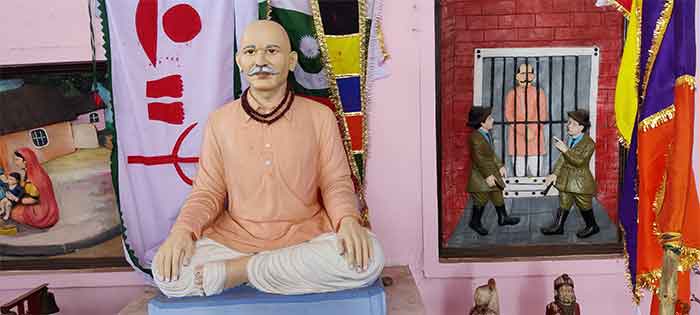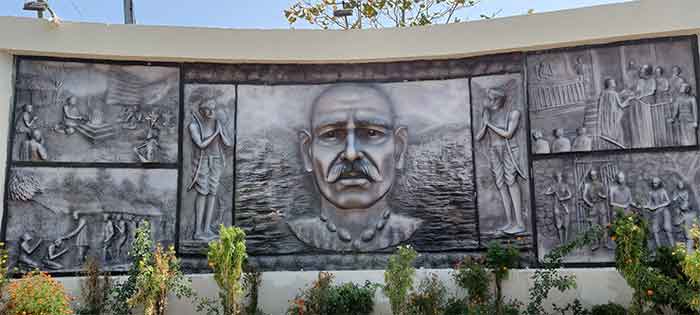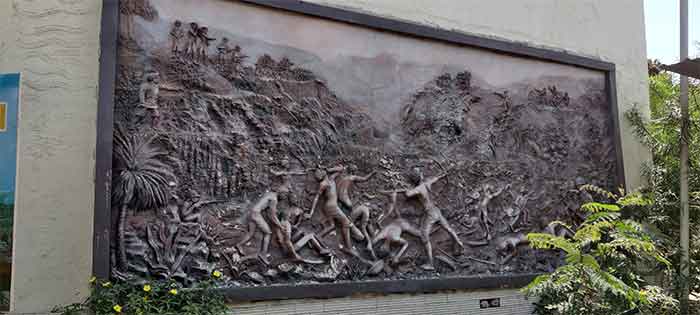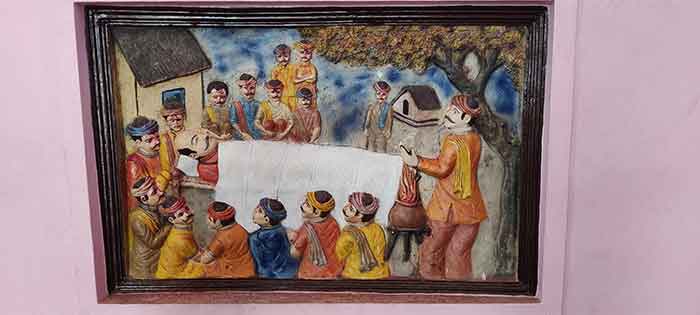
Recently when I visited several villages of Bhil tribal communities in Banswara district of Rajasthan, the greeting most often heard in villages was Jai Guru. The reference here is to Guru Govind, also known as Govindgiri, a social reformer and freedom fighter of 19th and 20th centuries who continues to live on in the songs, prayers, greetings and campaigns of tribal communities of Rajasthan, Gujarat and Madhya Pradesh even today.
Guru Govind was born in 1858 in a banjara (nomadic) family in Dungarpur region of Rajasthan. His early life was spent in difficult circumstances. He had to work as a farm laborer in exploitative conditions and some of his family members perished in a famine. Guru Govind started linking such tragic conditions faced by many families living around him to socio-economic conditions of those times which were characterized predominantly by leading exploiter colonial British regime and the various exploiter princely kingdoms. He started roaming around contacting people in Banswara, Sunth, Dungarpur and Panch Mahal regions having large tribal populations with whom he established a close rapport and understanding.

He started initially with a social reform program based on gender equality, giving up liquor consumption, keeping away from crime, avoiding all superstitions, giving more attention to sustainable livelihoods based on agriculture and land rights. He was not afraid to take a more radical stand on some of these issues. To give an example, he criticized the higher castes more for injustice towards women in general and widows in particular, while at the same time praising tribal communities for having more equality based gender relations.
His more radical interpretations were not liked by dominant sections and liquor sellers in particular were firmly against him.

In addition Guru Govind was increasingly overcoming the limits of social reform and relating the problems of tribal communities in particular to exploitative systems with the colonial regime at the top. Thus his discourse among tribal communities was also getting radicalized and acquiring a wider dimension against exploitative systems.
This led to actions being taken against him and his followers and his arrest around 1912. However he had to be released soon following very widespread resentment in the tribal communities.
However by this time the battle lines were drawn and followers of Guru Govind also realized that more oppressive actions will follow sooner rather than later. This led them to take a more defensive position and mobilize some weapons as well, although this was no match for the firepower of the colonial army.
On 17 November, 1913 the colonial British regime mobilized cannons and machine guns to fire on Bhil tribal freedom fighters gathered at the hill of Mangarh, located in present day Banswara district of South Rajasthan. Over 1500 of those gathered died. Govind Guru was arrested and sentenced to life imprisonment.

Eye-witness accounts have revealed that firing tactics designed to maximize killings were used. Despite the enormity of the tragedy—many more people were killed here than at Jalianwala Bagh in Punjab—the Mangarh massacre did not get the due attention in history till very recently. It appears that long over-due efforts are likely to be made now to do justice to the valiant Bhil freedom fighters and their great leader Govind Guru. The memories of Govind Guru are also etched in Hyderabad and neighboring areas where he was imprisoned.
Although initially sentenced to life imprisonment Govind Guru was released in 1919 but his entry in main areas of his following was prohibited. He continued to work as a reformer till his death on October 30, 1931 at the age of 73 at a place called Kamboi , near Limbdi ( Gujarat).
Despite the repression he faced and all efforts to curb his actions and message, his lasting impact on people, particularly tribal communities can still be seen in various villages in and around the tri-junction of Rajashan, Madhya Pradesh and Gujarat. However at the national level, there is need for more recognition for his contributions and also of his various valiant companion freedom fighters like Dhirji Punja and Punja Pargi.
Bharat Dogra is Honorary Convener, Campaign to Save Earth Now. His recent books include When the Two Streams Met, Azadi Ke Deewanon Ki Daastaan and A Day in 2071.
Photos by P.L.Patel















































